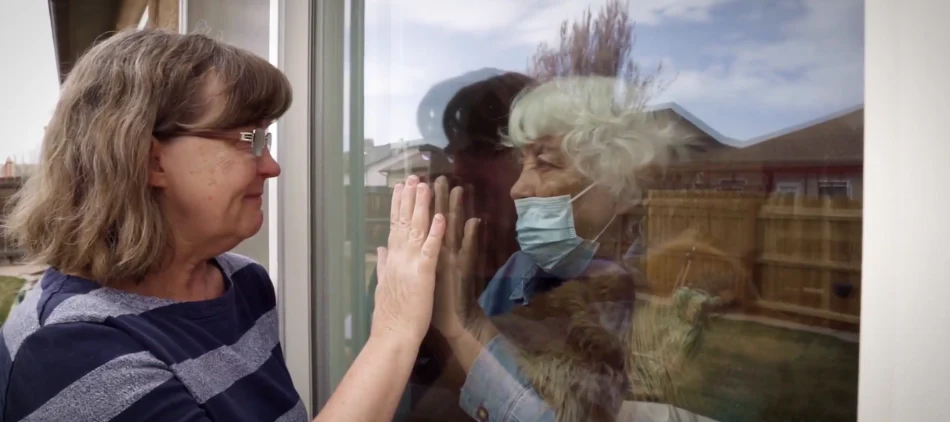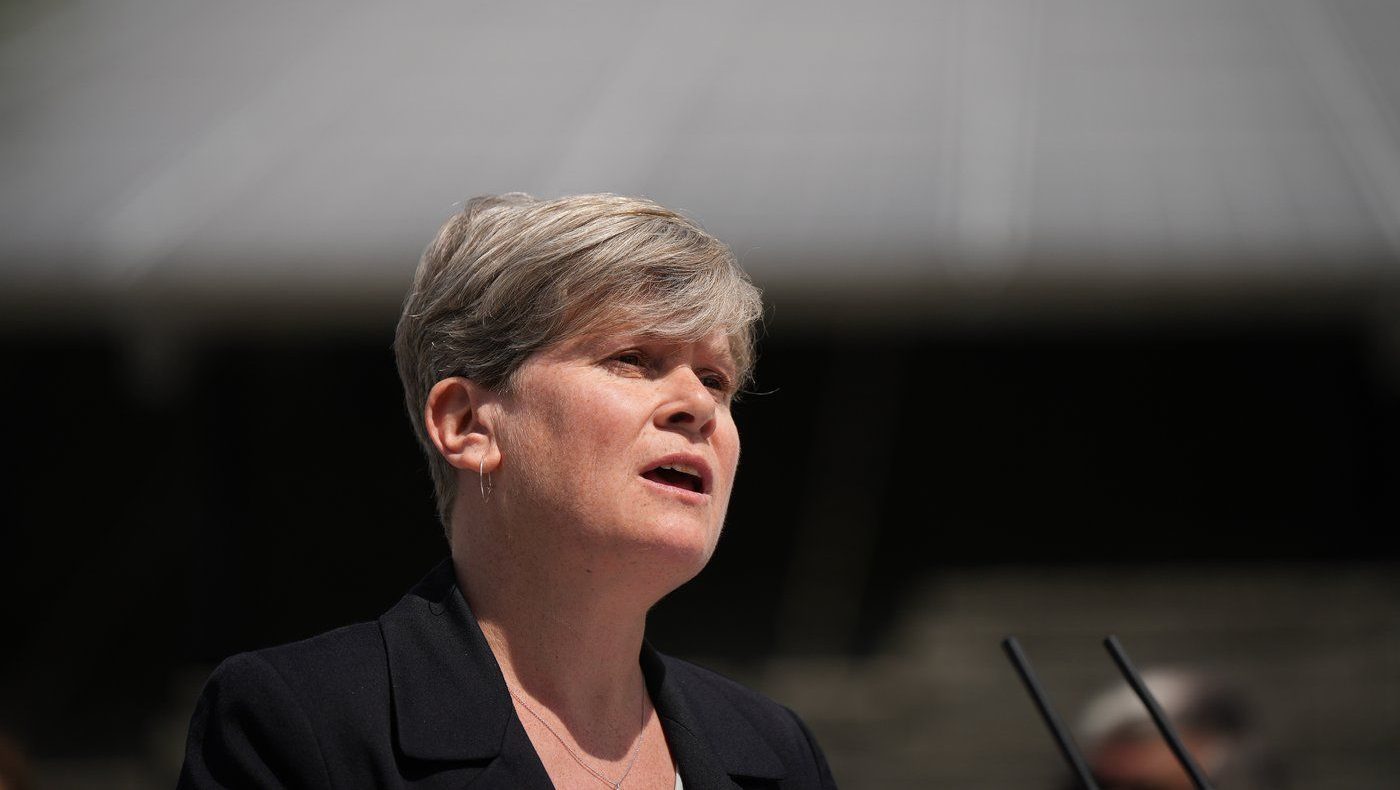Grief Frozen in 2020
Nearly five years have passed since the world was turned upside down by the COVID-19 pandemic, but for those who lost loved ones in those early days, it still feels like time has stood still.
For many, the most painful part wasn’t just the loss itself, but how it happened—saying goodbye over a phone call, separated by glass, or watching body bags being wheeled away from long-term care homes. Some families held modest funerals outdoors, braving the cold as they mourned.
As the five-year anniversary of the World Health Organization’s pandemic declaration approaches on March 11, The Canadian Press spoke to five people who lost someone they loved when the virus first began spreading.
More than 60,000 Canadians have died from COVID-19 since then, according to public health data.
“Unless you’ve experienced it firsthand, you’ll never truly understand how surreal and traumatic it was,” said Simar Anand, whose father died in the pandemic’s first wave.
“The hardest part? Watching the world move on while I’m still stuck in March 2020.”
A Quick Goodbye in a Hazmat Suit
Simar Singh Anand barely had time to process the news. When he was told he had 20 minutes to get to the hospital to see his father, he rushed there, only to find himself separated from him by a glass window.
On the other side, his father, Gurinder Singh Anand, lay lifeless on a hospital bed.
“I got on my knees and begged the nurses, ‘Please, just let me hold his hand,'” he recalled.
After pleading, he was granted two minutes by his father’s side, dressed head-to-toe in a hazmat suit.
“That was the last time I ever saw him.”
Gurinder Singh Anand, who had immigrated to Canada from India in the 1970s, had just started to experience what retirement could feel like. His Montreal restaurant, Resto Darbar, had closed temporarily due to the lockdowns, giving him his first real break in decades.
He built his restaurant from the ground up, starting in 2000 with just two dishes—chicken curry and aloo gobi—served on Styrofoam plates. Over time, it grew into a beloved community staple, known for its authenticity.
Three weeks after he shut down the restaurant, he could barely climb the stairs at home. When Anand called an ambulance, his father looked back at him as paramedics wheeled him away.
His funeral, limited by pandemic restrictions, was attended by only two people—Anand and his mother. Six hundred more watched online.
“I’m keeping myself busy so I don’t have to deal with the wounds of March 2020,” he admitted. “But while the world has moved forward, I’m still stuck there.”
‘Why Her?’
Maureen Ambersley worked as a registered practical nurse in a Mississauga long-term care home, despite her daughter’s desperate pleas for her to stay home.
She refused. Her patients and colleagues needed her.
Then, on New Year’s Eve 2020, Ashley Ambersley got the call she had dreaded—her mother was being intubated.
“We never got to say goodbye. We weren’t even by her bedside,” she said. “That thought haunts us every single day.”
Maureen fell ill just after Christmas, struggling to breathe. She was admitted to the hospital and died on January 5, 2021, at just 57 years old.
Ashley believes her mother sacrificed herself for others.
That was just who she was—always putting others first, opening her home to strangers in need, asking for hospital donations instead of birthday gifts. At home, she cared for her parents, her kids, and her grandkids under one roof in Brampton.
“If she could have taken out her own heart to save someone, she would have,” Ashley said.
Every day, she asks herself, Why her? What more could I have done to protect her?
‘It Can’t Be for Nothing’
For Erica Surette, her mother’s death wasn’t just a personal loss—it became the centerpiece of a class-action lawsuit.
Surette lost her mother, Patricia West, at Northwood, a Halifax long-term care home that became known as the epicenter of COVID-19 in Nova Scotia. At least 53 residents died there.
“It’s exhausting, having to relive it over and over,” she said. “But we can’t let it be for nothing.”
West, who had early-onset dementia, was initially in a private room. But in March 2020, the facility moved her into a double room, despite her daughter’s protests. Within weeks, she contracted COVID-19.
“The last time we spoke, she said, ‘Erica, I’m too tired. I have to let you go.’ And that was it.”
West died days later.
The lawsuit, filed shortly after her passing, argues that Northwood’s practices led to preventable deaths. The home has denied wrongdoing, stating the suit lacks sufficient evidence.
A Nova Scotia Supreme Court judge recently certified the class action, but Northwood is now appealing the decision.
“If I can do something to make sure our loved ones aren’t forgotten—if their deaths can lead to change—then I have to try.”
A Door That Wouldn’t Close
In March 2020, Samantha Monckton stood outside her father’s Vancouver care home, holding a trumpet to her lips.
Her father, Garry Monckton, was a talented pianist, and music had always connected them. Now, he was bedridden, battling COVID-19.
She played Blue Moon, hoping he would hear it from his third-floor window.
Inside, his nurse later told her, he had waved his hands along to the music.
Two weeks later, on April 2, 2020, Garry Monckton passed away at 77.
“I never got to see his body. I only picked him up in a bag,” she said, referring to the ashes she later collected from the funeral home.
At home, she listened to Elvis, clutching the velvet bag.
“There’s a natural order to life—you’re born, you celebrate birthdays, and eventually, you have a funeral,” she said. “But for us, it was like the door wouldn’t close properly. There was always a foot stuck in it.”
‘Learn to Live’
Phyllis Thompson had always been remarkably healthy, even at 89. Living in a Scarborough long-term care home with Alzheimer’s, she loved NASCAR, singing Frank Sinatra, and baking cookies—with raisins instead of chocolate chips.
When COVID-19 swept through her residence, her daughter Linda Gay clung to hope.
Then came the dreaded call.
“Friday, they said she wasn’t well. Saturday, she was worse. By Sunday morning, she was gone,” Gay said.
Her sister watched as their mother was wheeled away in a white body bag. Her personal belongings were handed back to them in a garbage bag. They couldn’t even bury her in her hometown of Quebec City until July 2022.
Yet, Gay refuses to dwell on those painful memories.
Instead, she smiles at the photo of her mother on her nightstand.
“Our hearts will always be broken. I don’t think they ever truly heal,” she said.
“But you learn to live with the little break in your heart.”







